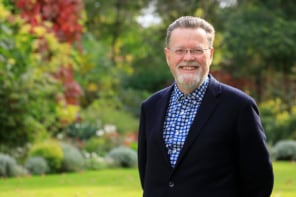Not sure what to do after graduation? Physics World is here to help with a free-to-read 98-page careers guide
With the start of the new academic year fast approaching at many universities around the world, now is the perfect time for final-year physics students to start thinking about what they’ll do after graduation. Many students will naturally have their eyes on a master’s or PhD, hoping to finally do some “proper” research after all those years studying textbooks. It’ll be your chance to perhaps be the next Curie, Hawking or Einstein.
But knowing what to do for at post-graduate level can be hard – there are almost too many options out there, from astronomy to Z-bosons. With that in mind, the bumper Physics World Careers 2019 guide is here to help, available free-to-read in both print and digital formats.
In the wake of the discovery of the Higgs boson at CERN’s Large Hadron Collider (LHC), particle physics is one of the most exciting areas of physics for many students. But the LHC won’t last forever and China is already planning its own ambitions accelerator – the Circular Electron Positron Collider. It’s being spearheaded by the Institute of High Energy Physics of Chinese Academy of Sciences, which is right now looking for scientists and engineers at all stages of the career.
If you’re thinking of a PhD in a more applied field, condensed-matter physics is where many physicists make their mark. A lot of exciting work is going on graphene – the 2D “wonder material” – and what better place to study it than the University of Manchester, where Andre Geim and Kostya Novoselov isolated the material in 2004, bagging a Nobel prize for their efforts in 2010. The university offers doctoral training in graphene, through its Graphene NOWNANO CDT.
Optics is another field where many PhD physicists find their fortunes. Physics World Careers 2019, for example, features ICFO – the Institute of Photonic Sciences in Barcelona, which has more than 400 researchers on both basic and applied research, using light to tackle challenges in health, energy, IT, security and industry.
Some physicists, of course, want to feel part of something big, so you might like to consider the Scottish University Physics Alliance. It brings together eight different physics schools – at Aberdeen, Dundee, Edinburgh, Glasgow, Heriot-Watt, St Andrews, Strathclyde and West of Scotland – to form a 1200-strong community of physicists, including 600 postgraduate students.

Now if you’re worried that a graduate course doesn’t offer enough contact with the “real world”, you could consider Cardiff University’s school of physics and astronomy, which offers all students the opportunity for a professional placement in industry. The Institute of High Frequency and Quantum Electronics at the University of Siegen in Germany, meanwhile, offers what it calls a “House of Young Talents”, in which students are given workshops and training in everything from science writing to career coaching.
Energy is another big sector where physicists end up and if you’re set on a career in the burgeoning nuclear industry, it helps to get formal training at master’s level before moving in to the field. A great option is the University of Birmingham’s School of Physics and Astronomy, which offers a fantastic MSc on the physics and technology of nuclear reactors. The course has an exceptional pedigree, having been running for more than 60 years since the very early day so of nuclear power.
A similar Master’s programme is available from the South West Nuclear Hub at the University of Bristol, giving students a grounding in the science and engineering of the global nuclear industry. Another option is the UK’s Nuclear Technology Education Consortium, which offers postraduate education in nuclear science and technology – both directly taught and via distance-learning formats.
We hope you find Physics World Careers 2019 useful. You can also sign up today for our brand new careers newsletter. Sent once every two months, the newsletter will bring together a variety of case studies, valuable careers advice, and information from leading employers you might be interested in working for. To sign up, simply sign into your Physics World account and tick the “Careers bimonthly” box.




